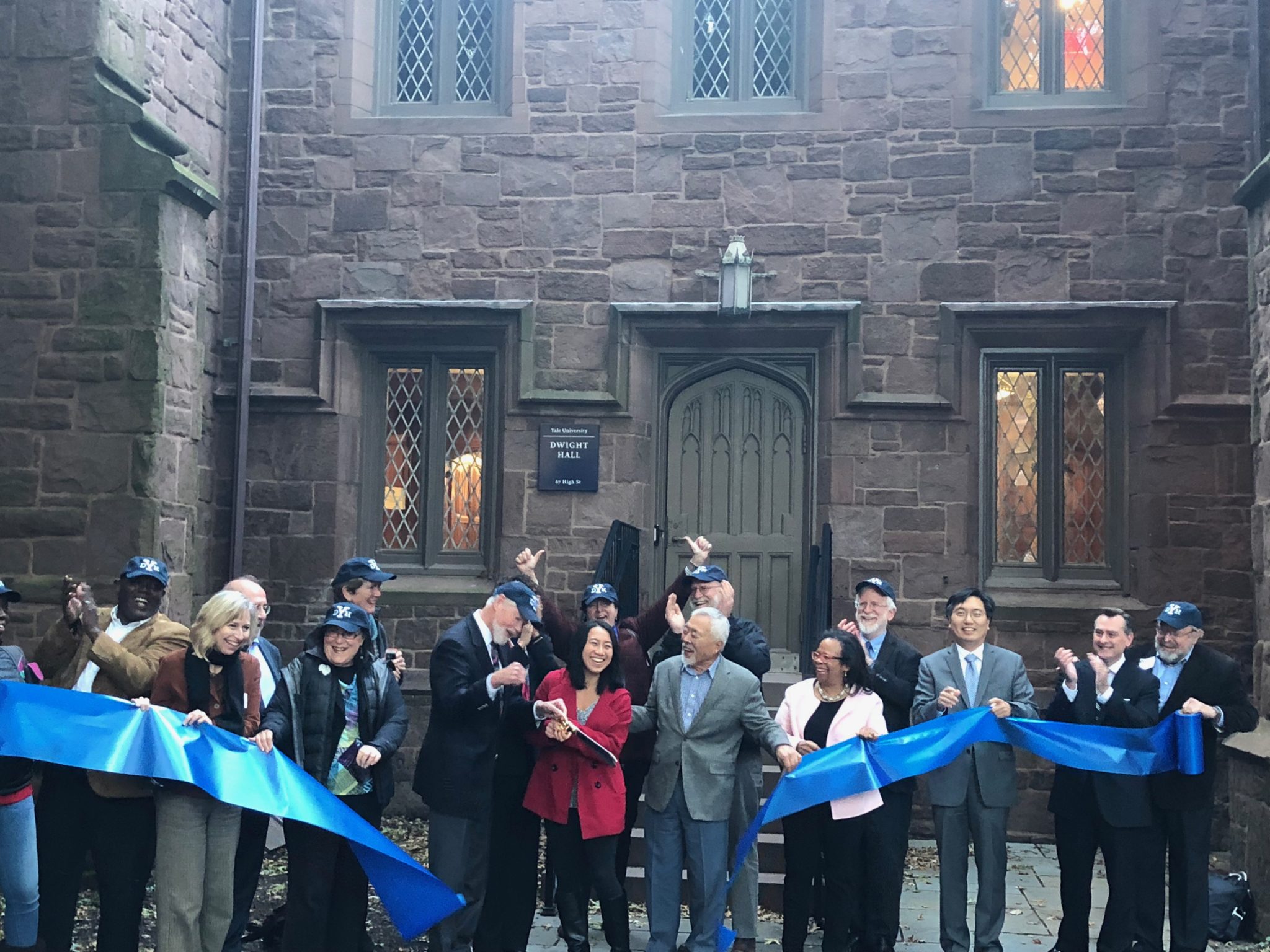
David Warren DIV ’70 ARCH ’70 has lived on the Manhattan Project site, marched through Selma with Martin Luther King, Jr., met with leaders of the Black Panther Party and studied in Mahatma Gandhi’s ashram. On Wednesday afternoon, he gave a talk to the Yale community members in Dwight Hall.
Over a dozen Yalies gathered in the Dwight Hall Common Room to hear Warren, the founder of the Dwight Hall Summer Fellowship, which is celebrating its 50th anniversary this year, speak. The Fellowship is a program that allows students to design an independent project that addresses a particular social need. During the talk, Warren connected his past involvement in prominent social justice movements to his current dedication to service. The talk was followed by a short rededication ceremony held outside Dwight Hall to celebrate the building’s reopening after a year-long renovation project.
During the tea, titled “How Did I Get from There to Here,” Warren said his upbringing inspired him to pursue service as a career. A self-described “child of the Manhattan Project” — a World War II nuclear development undertaking — Warren spent his childhood near one of the project sites in Hanford, Washington, where his father worked as a plutonium researcher. However, once he left Hanford’s highly educated and scientific community, Warren said he found “the other America.”
“I encountered extraordinary poverty, racism, houses without running water, children without satisfactory clothing and communities in complete disarray,” Warren told the room. “That was the turning point for me. I thought: How do I increase the life chances of people in order to enlarge their life choices?”
That inquiry became a “mantra” for his life, Warren said. Warren was drawn to writings from Henry David Thoreau on civil disobedience, as well as to Gandhi’s nonviolent school, whose teachings he studied in India while on a Fulbright scholarship. He translated these ideas into direct action during the civil rights movement of the 1960s, marching with MLK to Montgomery, Alabama to advance the passing of the Voting Rights Act of 1965, which prohibited racial discrimination in voting policies.
Later, Warren attended the Yale Divinity School to study the role of religion in the civil rights movement. Warren was drawn to Yale because he wanted to serve communities in need, including New Haven, and wanted to learn from Yale Chaplain William Coffin, who later became his trusted mentor. Still, Warren added that he found himself frustrated by the school’s purely academic and theological dialogue in the crux of the civil rights era.
“I was looking for a place where the kind of moral compass [Chaplain] Bill Coffin provided and the political need to act could be found, and Dwight Hall was that place,” Warren said. “It was an organization open to ideas and finding ways to implement change.”
At Dwight Hall, where he first served as an intern, Warren sought to create outreach programs to directly engage with the local community and address issues of national importance such as racial discrimination and women’s rights. The University needed to utilize its vast resources to “find ways to address these matters,” he added.
Warren later served as the Dwight Hall General Secretary, a position now filled by Executive Director Peter Crumlish DIV ’09. As General Secretary, Warren led the organization by hosting teach-ins, free courses and service projects related to issues of social justice.
Alumni who attended the talk said that Warren’s leadership left a lasting impression.
Deborah Rose ’72 SPH ’77 GRD ’89, a graduate of the Dwight Hall Summer Fellowship who is now researching sustainable development in Ghana, said that Warren’s guidance influenced her career choices.
“Between David Warren and others, anything I’ve done before — and now — is because of Dwight Hall,” Rose said.
The talk was followed by a rededication ceremony to celebrate Dwight Hall’s return to campus after its renovation.
Held outside Dwight Hall, the ceremony began with a short speech by John Meeske ’74, chair of Dwight Hall’s Board of Directors. In his speech, Meeske thanked the Dwight Hall community for their support. Crumlish, who spoke after Meeske, thanked University President Peter Salovey and noted the important role Dwight Hall plays in the Yale community.
“That’s what we’re celebrating today … the future of the students who will do the work this world so desperately needs,” Crumlish said in his speech.
Warren and Serena Ly ’20, current co-coordinator of Dwight Hall, cut the ribbon in a ribbon-cutting ceremony to commemorate the building’s reopening.
Ly said she was “honored” to take part in the event, noting that it was a “humbling” experience to see so many members of the Dwight Hall community coming together.
“The Hall has been, for 50 years that I’ve been associated with it, a place you could bring your convictions, think in a principled way and act,” Warren told the News after the ceremony. “And I think that there are few institutions like that.”
Dwight Hall was founded in 1886.
Aakshi Chaba | aakshi.chaba@yale.edu
Eileen Huang | eileen.huang@yale.edu







